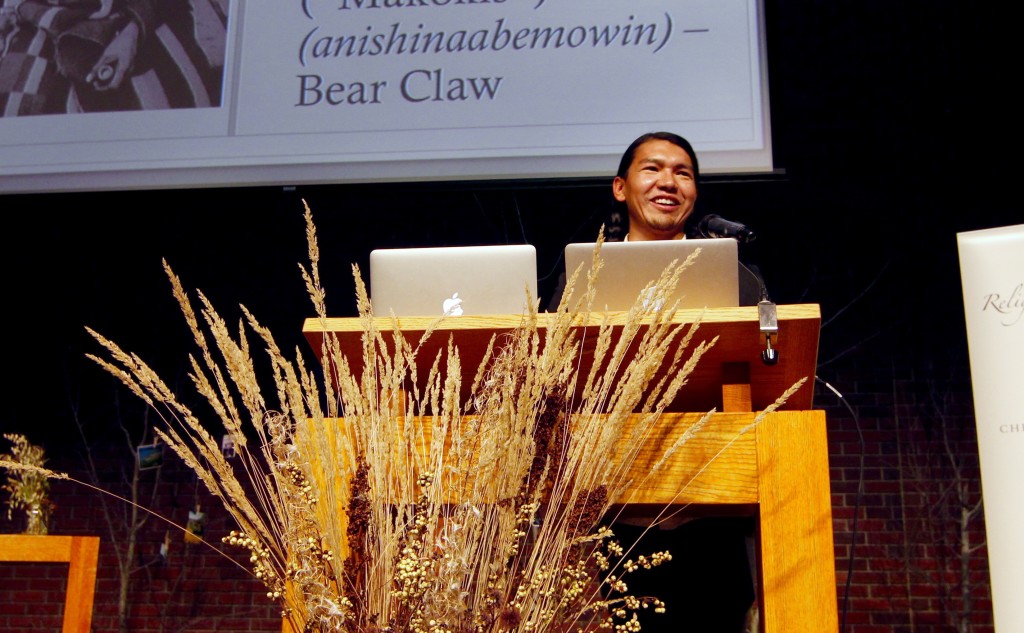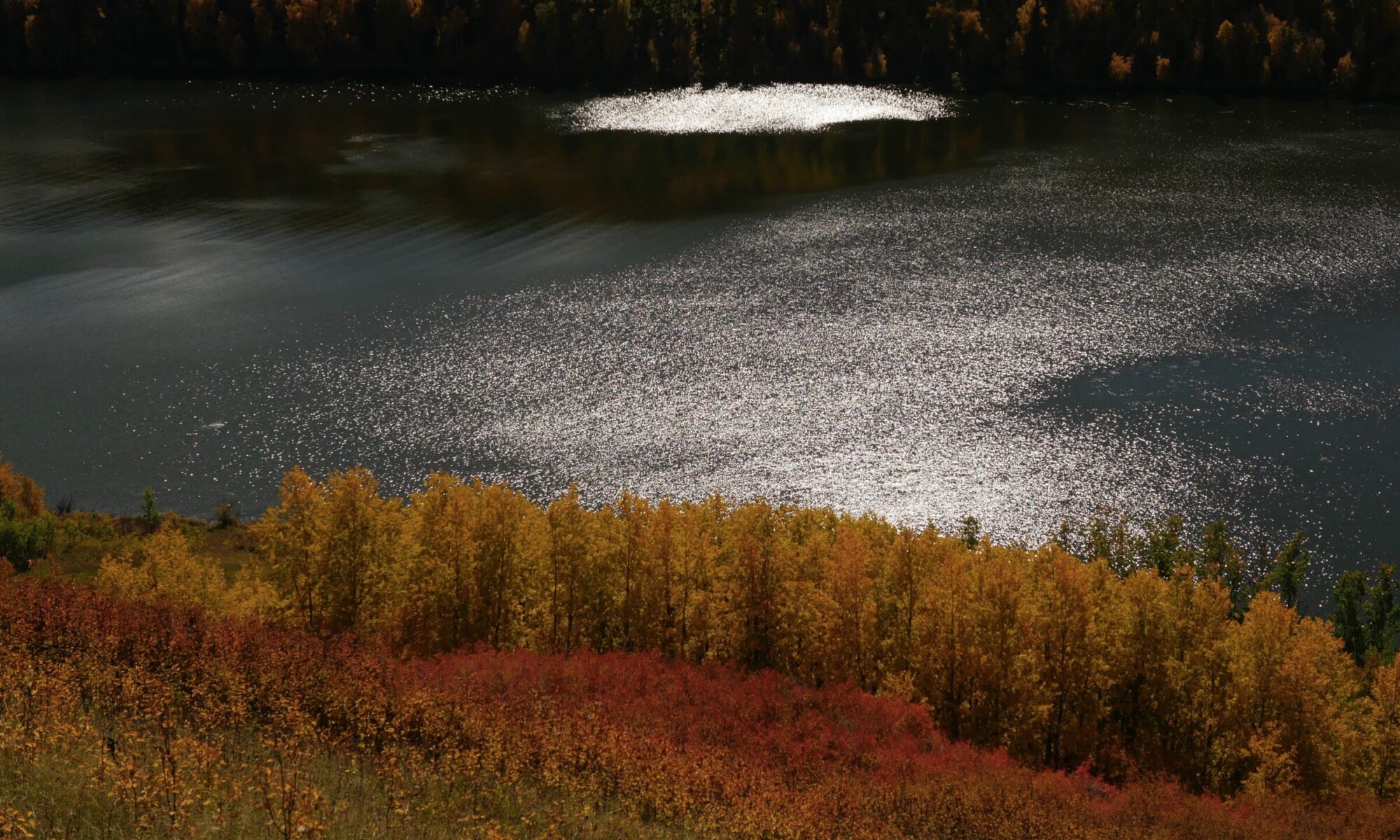by Jessica Ryan
I’ve heard dozens of speakers on all sorts of thought provoking topics in the last couple of years here in Camrose. Hearing Dr. James Makokis speak at the Making Peace with the Land conference at Augustana Nov. 14 was a different experience entirely.
 Judging by the rapt attention, the unified susurrus of reaction and the stunned discussion afterward, I think I can honestly speak for a majority of the audience when I say it rocked my worldview.
Judging by the rapt attention, the unified susurrus of reaction and the stunned discussion afterward, I think I can honestly speak for a majority of the audience when I say it rocked my worldview.
It was something like I imagine it might feel to find out you were adopted. The ground shifted under my feet. I felt myself a stranger upon the land I’d taken for granted was conquered territory. After all, countless empires have risen and fallen since recorded time began. There have been invaders and the invaded, rulers and exiles. My ancestors were driven out of Ireland by revolt and famine: what’s the big deal?
I thought I understood that axiom about history being written by the victors, but the resulting incomplete picture makes it all the more certain we’re doomed to repeat history.
I confess, I have always had greater regard for civilizations that built impressive structures and wrote stuff down. But having been offered a glimpse of the sophistication of an oral tradition like that of the indigenous people of this area, I begin to see how arrogant is my way of thinking.
Just how great is Western civilization anyway? A couple thousand years of philosophical thought and the net result is a rabid individualism that leaves most of the earth’s population in war, poverty and ecological devastation and puts the wealth in the hands of first-worlders who are alienated from their work and any meaningful community.
Is this a gross generalization? Yes, but that’s the point. The nuances are likely there to be pondered by scholars, but everyone else is living the reality of a society founded on the primacy of private property and framed by the commoditization of the land and everything on it.
The conferences’ first speaker, Norman Wirzba, asked the audience to imagine being free from the imperative to look out for number one – to feed, shelter and clothe oneself, plan for retirement, etc. – and instead know there is a community looking out for you, with all the mutual responsibility that entails.
It’s not a utopian dream, though. There’s that uncomfortable passage in the New Testament (Acts 4:32-35) that very few people seem to have taken seriously since the time of the early church.
“And the multitude of them that believed were of one heart and of one soul: neither said any of them that ought of the things which he possessed was his own; but they had all things common…Neither was there any among them that lacked: for as many as were possessors of lands or houses sold them, and brought the prices of the things that were sold, and laid them down at the apostles’ feet: and distribution was made unto every man according as he had need.”
I doubt our society will change instantly, but I believe this picture of community is something to aspire to. Among many other worldviews, the merits of which I had not previously considered.
First published in the Camrose Canadian, Nov. 26, 2015
Written by Jessica Ryan, Editor

Thank you so much, Jessica. You capture well how the ground shifted beneath our feet as we listened to James Makokis. In Southern Mexico people are always impressed with the big ruins from the Mayan culture. But in fact, these were the aberrations, the times of empire building, whereas the normal Mayans such as the Tojolabal work and live — even today — as community with the land and each other and do not dominate others.